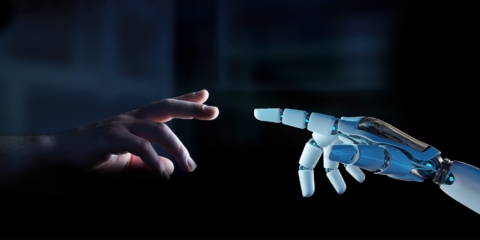Would you like to get notifications from Christian?
What happened?
The global supply chain is currently experiencing all kinds of glitches, from material shortages to labor shortages and beyond. Moving goods from point A to point B has become more expensive, and there’s no quick fix in sight. But a San Diego-based startup plans to meet some of the demand for air freight with an innovative solution: autonomous cargo drones as big as a Boeing 747. And customers are jumping on board.
Read more here: https://bit.ly/3gLPEBy
Why is this important?
Natilus, founded in 2016, this week announced $6 billion worth of pre-orders for over 440 of its aircraft. The company says its blended wing design can fit 60 percent more cargo than existing freight aircraft while cutting costs by 60 percent and with 50 percent fewer carbon emissions. Aleksey Matyushev, the company’s CEO, pointed out in a press release that moving freight by sea is 13 times cheaper than moving it by air, but takes 50 times as long. “Natilus intends to revolutionize the transport industry by providing the timeliness of air freight at an affordable cost reduction of 60 percent, making air cargo transportation substantially more competitive,” he said. Although still in development, these mega-drones are said to be able to fly further and longer than traditional drones, while carrying a much heavier load. This initiative is part of a plan to develop more sustainable modes of transportation, and it’s hoped that the mega-drones will help to reduce greenhouse gas emissions across the globe. The next goal is of course to develop drones that are carbon-neutral, powered by regenerative energy sources.
Christian is a futurist and trendwatcher who speaks about the impact of exponential technologies like AI on organizations, people, and talents. Christian tailors his presentations to your audience’s specific industries and needs.




Embracing the advancements of technology and AI can enhance our humanity. We can focus on developing our unique talents and skills by automating mundane tasks and freeing up our time. As humans, we can adapt and learn, allowing us to evolve and stay relevant in a rapidly changing world constantly.


Organizations will need to be more fluid, dynamic, and adaptable: the ability to change and adjust in response to new situations and environments. We are on the cusp of a new era of organizations, ones that are more fluid and agile and which behave like swarms we see in nature.




In the future, 3D printing and generative design will allow for products to be designed in a more decentralized manner, and production will take place closer to the customer and fully on-demand. 3D printing technology will also allow for more customization and personalization of products.


The agricultural industry is ripe for disruption. Robotics, AI, and IoT are all technologies that have the potential to radically transform the way we grow food. In combination with vertical farming, these technologies could increase the efficiency and quality of agricultural products.

A human-centered society is one that puts people first and where technology is used to unite and empower people. It is a society that values biological life and dignity above all else. It is a society that recognizes the importance of human relationships and works to strengthen them. In a human-centered society, all members of the community are valued and treated with respect.


The future of healthcare is here. New technologies like AI, IoT, big data, and smart sensors make it possible to become the CEO of your own health. Imagine that your phone can listen to your voice and AI algorithms can detect small nuances in the tone of your voice that indicate specific diseases.
